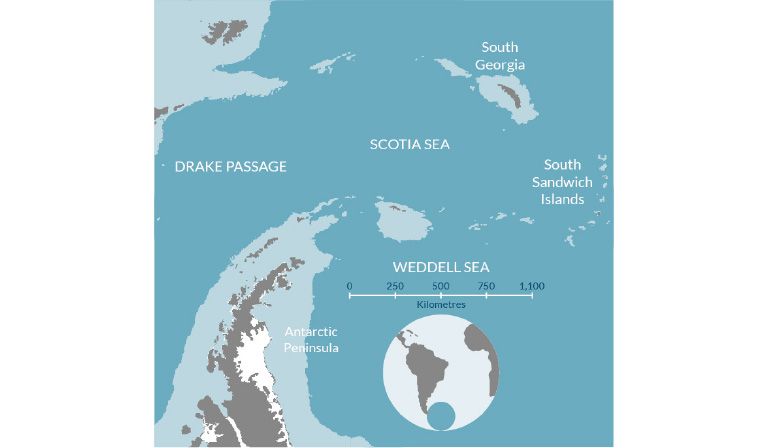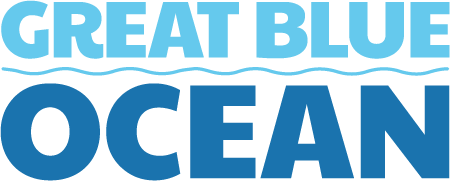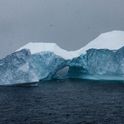Not many people can name all 16 of the United Kingdom’s Overseas Territories (OTs), and likely even fewer realise that, since 2016, successive Conservative governments, working in partnership with OT administrations, have taken huge strides to safeguard the unique and sprawling ocean habitat that surrounds them through a globally significant environmental policy-—the Blue Belt Programme. It’s a policy that deserves to be better known, and this Prime Minister Rishi Sunak has the chance to give it a major boost to protect some of our most iconic wildlife and secure the UK’s standing as a global ocean leader.
Thanks to these OTs the UK has the fifth largest marine estate in the world, with the legal right to manage and conserve the resources within 200 nautical miles of the coast of each of these (mostly) island territories.
As we approach a General Election, the United Kingdom has the chance to strengthen the Blue Belt and make a globally significant marine conservation impact via a five-year review of the South Georgia and the South Sandwich Islands (SGSSI) MPA. Located deep in the South Atlantic Ocean towards Antarctica, and with no permanent population, SGSSI is the UK’s most wonderous biodiversity hotspot – providing a home for millions of penguins, recovering populations of blue whales, and giant sparring elephant seals. But a significant proportion of the EEZ remains open to an industrial krill fishery dominated by Chinese and Norwegian vessels.
With commitments to expand and implement marine protections featuring in every Conservative election manifesto since 2015, the Blue Belt Programme primarily supports the OTs to design and implement marine protected areas (MPAs, within which damaging extractive activities such as fishing should be restricted). The policy was triggered by the fact that 85% of the critically endangered species the UK is responsible for are found in the OTs, including a third of the world’s penguin population. These species are increasingly under threat: climate impacts are heating the ocean and melting polar ice at unprecedented rates, highly sophisticated fishing fleets continue to plunder already overfished stocks, while multilateral decision-making and shared regional conservation action becomes harder to obtain under the weight of geopolitical stress.
Through my various roles in government, including as Minister for the OTs, I have watched one OT after another announce ambitious marine conservation commitments to the world – meaning that today the UK can proudly state that over 4 million square kilometres of our waters are protected. In 2022, this allowed us to bring together governments from across the world around a new global target to protect at least 30% of the ocean by 2030 (the 30x30 target of the UN’s Global Biodiversity Framework). I know first-hand that without the Blue Belt the UK would not have had the international credibility to lead such an initiative.
The first of the Blue Belt MPAs was legally designated in 2016 by the Pitcairn Islands, an archipelago of four tiny islands in the Pacific Ocean. Pitcairn is populated by approximately 40 people, the majority of whom are descendants of the mutineers on the Bounty, who first landed there in 1790.
Subsequent large MPAs include three in the Atlantic Ocean around the islands of St Helena (2016), Ascension (2019) and Tristan da Cunha (2020). Thanks to these MPAs, Ascension and Tristan da Cunha have fully protected 90% or more of their waters from industrial extraction. Shielded from direct human impacts, marine habitats and biodiversity as varied as coral reefs, kelp forests, sharks, tuna and turtles can now flourish. In the remaining waters, small, locally managed fisheries, such as Tristan’s sustainably certified lobster fishery, continue to support the islands’ economies.
Today, the Blue Belt remains this government’s flagship conservation programme. Currently funded at just £8 million per year by the Foreign Office (staggeringly good value for money), it supports the OTs to protect and manage their waters, including protecting against illegal fishing by foreign fleets. The majority of the UK’s OTs are now part of the programme, including the newest members the Cayman Islands, Anguilla, and Turks and Caicos, and the Blue Belt represents some of the most economical conservation in the world, costing just £1.86 per square kilometre of ocean protected.
Now the Programme must be strengthened even further. Although under UK jurisdiction, South Georgia and the South Sandwich Islands sit within a regional ocean management framework called CCAMLR (the Commission for the Conservation of Antarctic Marine Living Resources). Each year, there is hope and anticipation that CCAMLR will finally agree to protect the Southern Ocean by designating a network of high seas MPAs. Sadly, during this October’s annual meeting, it once again failed to deliver against this mandate. In fact, consensus-based decision making has failed repeatedly since 2016, as CCAMLR member states place commercial fishing interests above the global imperative to protect our wounded ocean.
That’s why the 2023 local government-led review of these waters is so critical. Partnership with UKOT governments is very important and this opportunity only presents itself once every five years in SGSSI. It provides an opportunity to enhance protection by fully protecting the isolated waters of the South Sandwich Islands, and in doing so creating a South Atlantic Marine Wildlife Sanctuary. Strong UK leadership is once again necessary, especially considering the international community’s failure to safeguard the broader Southern Ocean region – even as it experiences record heat and ice melt.
Under Prime Ministers from David Cameron to Rishi Sunak, the UK has partnered with its OTs to ratchet up marine protections to the extent that today, the Blue Belt policy is respected the world over. It is imperative that in 2023 and beyond the Conservative Party builds on these successes to strengthen its network of MPAs, starting with South Georgia and the South Sandwich Islands. By deepening our commitment to the Blue Belt, we will not only enhance the precious marine environments of our OTs and support the isolated communities that rely on them, but we will show the rest of the world that British ocean leadership is as strong as ever.















